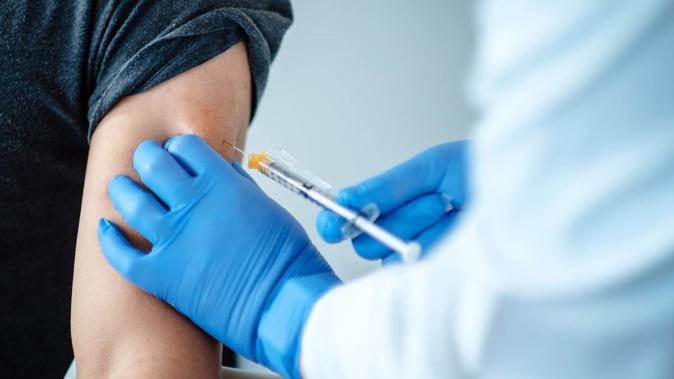
Media articles highlighting some peoples' hesitancy toward receiving the Covid-19 vaccine could be just as impactful in swaying us as outright misinformation, a new study finds.
Yesterday, it was announced that vaccinations in New Zealand had passed the one million mark - with director general of health Dr Ashley Bloomfield among the latest to receive their first dose.
Surveys have shown willingness to receive the Pfizer vaccine has been rising over time, reaching the point where four in five Kiwis now either intend to get the shot or are leaning toward it.
But as a major government campaign drives home key messages around the vaccine, such as its safety, efficacy and importance for community protection, experts warn how official efforts risk being undermined by a parallel "misinfodemic".
Massey University communications lecturer Dr Jagadish Thaker singled out nationwide letterbox drops by the group Voices for Freedom as one example of deliberately spread false or misleading information.
However, he said it still wasn't clear how much impact, if any, this had on public attitudes.
In a newly published study, he and colleagues set out to test what effect clear "disinformation" had, compared with misinformation - or merely news media stories that could potentially sway people from receiving the vaccine.
"While a majority of the public may reject outright disinformation, they may inclined to believe in misinformation, particularly if it is framed in engaging ways."
In the study, a group of nearly 1100 respondents from around the country were asked about their intentions to get the vaccine, before later answering a set of unrelated questions that were designed as a mid-study distraction.
Lastly, the survey sample group was broken into three groups that were each shown material that was either factual, misinformation, or could promote hesitancy.
One piece of misinformation used in the study was a social media post wrongly claiming the vaccine could interfere with genetic material.
An example of "hesitancy" material was a New Zealand Herald article - since removed from the Herald website - detailing a mother's concern over her son receiving the vaccine.
As a control, the researchers also selected a post from the Government's "Unite Against Covid-19" Facebook page, announcing vaccine approval and rollout.
After analysing changes in the respondents' original intentions to vaccinate, the researchers found that "vaccine hesitancy information" could be just as potent as exposure to straight-forward misinformation.
"What we uniquely show is that not just outright disinformation, but also misinformation - news stories highlighting hesitancy, featuring alleged adverse reactions to Covid-19 vaccine, and that use personal narratives as a news hook - can also make people hesitant about getting a vaccine," Thaker said.
"Moreover, compared to out-right disinformation, these stories portraying hesitancy are perceived as more believable and respondents were more likely to share it with family and followers."
Thaker explained that news media remained a primary gateway of information about health and science for the public, even on social media platforms.
"So when we read news stories, we are likely to readily believe the information to be accurate," he said.
"There are several ways a news story is framed to attract and engage the public. One such is the personal story hook or focus on human interest.
"However, when the story writer doesn't do a due diligence - citing a local expert, providing context, clarifying the science - these stories will perpetuate some myths people already carry or raise new concerns."
He pointed to research suggesting around half of Kiwis already believed in some form of misinformation - and that attitudes toward vaccines were becoming more polarised in New Zealand.
"However, there appears to be several promising avenues to help correct public misinformation," he said.
"Colleagues in the US and UK have found that 'inoculating' the public is good way to prepare them to face misinformation."
His team were now exploring whether corrective information could indeed help reduce vaccine-related misconceptions - and therefore help boost the number of Kiwis intending to get vaccinated.
Take your Radio, Podcasts and Music with you









